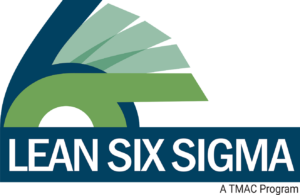City of El Paso: Parks and Recreation
Parks and Recreation Permitting Process
The City of El Paso compromised to deliver outstanding services to support a high quality of life for residents, businesses and visitors. One of their strategic goals is to set the standard for sound governance and fiscal management along with create innovative recreational, educational and cultural programs.
The Situation
Processing a park and recreation outdoor space permit was taking a long time, affecting cost and customer satisfaction.
The median time for processing a park and recreation permit was 16 days and the cost associated with it was $214. The process started with a customer requesting a permit either by email, fax or in person and ended with the customer receiving the permit.
For the City of El Paso, the voice of the customer is priority, so they decided to involve one of their most frequent permit applicants (customer) to the project to provide feedback and to be part of the solution.
“As a customer, my experiences in the Parks and Recreation permitting process had always been somewhat complicated. The process was extremely lengthy and stressful. I was invited by Ms. Paula Powell to be a part of this team. I’m very glad the city is interested in what the customer has to say and how we feel when it comes to these issues. I’m honored to represent our community because we have waited a long time for something like this to happen; changes that will positively impact our experiences when it comes to obtaining a permit. It’s great to see such improvements and progress moving further into this technological era.
Once again thank you for inviting me, it has been a learning experience and I am very happy to be a part of the solution. “
~Teresa Sosa, team member and customer
The Solution
By applying the Lean Six Sigma methodology, there was more than a 93% reduction in processing time!
With a dedicated team the goal of reducing the processing time was successfully achieved. Some of the tools used through the DMAIC process were the SIPOC map, statistical data analysis, detailed process maps, time studies, cause and effect diagram, and mistake proofing. The team brainstormed and carefully analyzed the possible causes of the problem allowing them proposed, prioritized and evaluated solutions ideas. The top solutions included: elimination of unnecessary steps in the process, the development of specific site maps with identifiable areas for rental, designate areas for park rentals, and a new online application.
After piloting and fully implementing the solution, the time for processing a permit substantially reduced from a median of 16 days to only 1 day, and in consequence the cost reduced from $214 per permit to $13.40, representing an estimated annual saving of $32,165. The replication opportunities identified were for other similar types of permits that include: concession permits, special event permits involving outside departments, film permit, independent league permits, shelter permits and tournament permits.
The lessons learned from the team after participating in this project were:
- Communication is essential
- Teamwork works
- Meeting, deadlines and to-do lists need to be followed through
- Technology needs to be used to its fullest
- You have to have an open mind to accept changes
- Management support is of utmost importance
[dt_sc_testimonial name=”Mary Gamez” role=”Green Belt team member” image=”https://sixsigma.jacszen.com/wp-content/uploads/2015/01/Wolters.png”][dt_sc_hr_invisible]I just want to say thank you for giving me the opportunity to be a part of the Lean Six Sigma improvement team. You have no idea how great it is to be involved in working through the process and helping make the changes instead just being told how to change things.[/dt_sc_testimonial]

